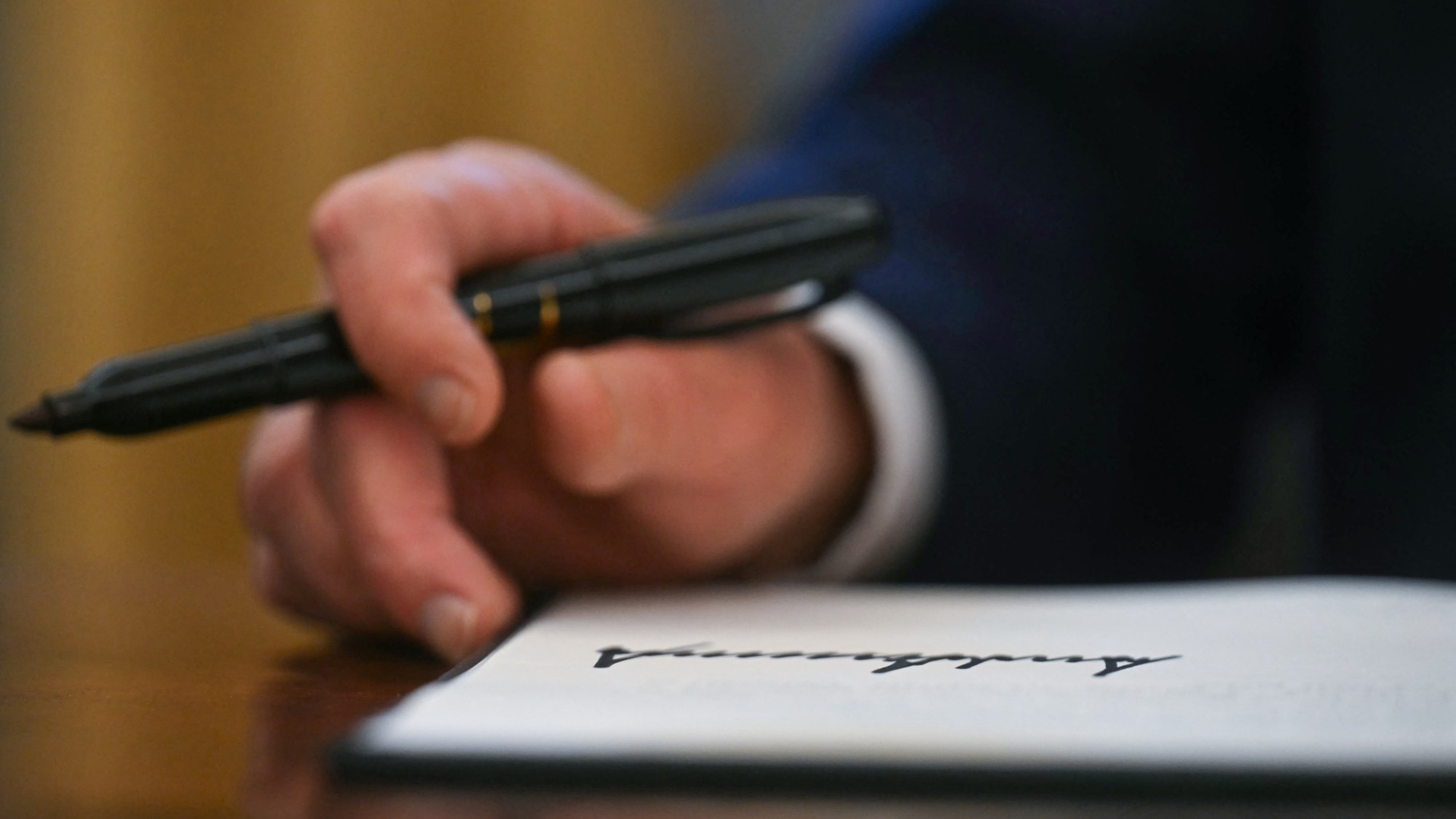What is a sovereign wealth fund?
Trump has suggested using one to buy TikTok


A free daily email with the biggest news stories of the day – and the best features from TheWeek.com
You are now subscribed
Your newsletter sign-up was successful
The federal government is going into business. President Donald Trump on Feb. 3 signed an executive order establishing a sovereign wealth fund to, as he stated, "promote the long-term financial health and international leadership" of the U.S.
America's new sovereign wealth fund is either a "feasible idea to invest strategically" or a "giant opportunity for waste," said Tufts University's Patrick J. Schena at The Conversation. Such funds are usually associated with "great wealth," especially in oil-rich countries like Norway and Saudi Arabia — which created LIV Golf using its fund — and are generally used by those countries to invest in projects of "strategic interest." But how those funds are built and how they are used varies from country to country.
How do sovereign wealth funds work?
A sovereign wealth fund is a "state-owned investment fund that manages a country's financial assets," said Kiplinger (a sister site of The Week). Countries can take "surplus revenues" — from exports, taxes or other sources — and invest them, either to "achieve long-term economic stability" or (more controversially) to "finance political or diplomatic priorities" that can work as a form of soft power when the country is trying to grow its global influence. And the funds can buy "just about anything." For example, China uses one sovereign fund to finance power and transportation projects in Africa.
The Week
Escape your echo chamber. Get the facts behind the news, plus analysis from multiple perspectives.

Sign up for The Week's Free Newsletters
From our morning news briefing to a weekly Good News Newsletter, get the best of The Week delivered directly to your inbox.
From our morning news briefing to a weekly Good News Newsletter, get the best of The Week delivered directly to your inbox.
How would the US fund be financed?
America isn't exactly running budget surpluses these days. Indeed, "it's unclear" how the United States might come up with money for a fund, said The New York Times. In addition to longstanding budget deficits, the federal government also "doesn't have any significant natural resource revenue" to provide the cash.
Trump's team pointed to $5.7 trillion in assets held by the government — a mix of cash, defense stockpiles and other property — as a possible source, but it's also unclear "how those trillions of dollars could flow into a sovereign wealth fund," said the Times.
What will Trump use the fund for?
The president has suggested using the fund to buy TikTok, said CNN. "If we make the right deal, we'll do it," Trump said while signing the executive order. (TikTok did not meet a legal deadline to sell the company from its Chinese owners by January, putting the social media company's future in limbo.) Otherwise, he said, there are a "lot of options."
What are the downsides?
There are "plenty" of things that could go wrong, said The Wall Street Journal. An American sovereign wealth fund might divert capital from the private-sector economy, as well as "fund political boondoggles, and mess with the business decisions of private companies." The funds of other countries tend to "enrich a country's rulers and their friends far more than citizens." Malaysia's fund has "channeled billions of dollars" to the prime minister and his cronies. "Corruption is a constant temptation."
A free daily email with the biggest news stories of the day – and the best features from TheWeek.com
What next?
Trump's order gave the Treasury and Commerce Departments 90 days to submit recommendations for "funding mechanisms, investment strategies, fund structure and a governance model," for the fund, said Reuters. Any plan will "likely require approval from Congress."
Joel Mathis is a writer with 30 years of newspaper and online journalism experience. His work also regularly appears in National Geographic and The Kansas City Star. His awards include best online commentary at the Online News Association and (twice) at the City and Regional Magazine Association.
-
 Political cartoons for February 16
Political cartoons for February 16Cartoons Monday’s political cartoons include President's Day, a valentine from the Epstein files, and more
-
 Regent Hong Kong: a tranquil haven with a prime waterfront spot
Regent Hong Kong: a tranquil haven with a prime waterfront spotThe Week Recommends The trendy hotel recently underwent an extensive two-year revamp
-
 The problem with diagnosing profound autism
The problem with diagnosing profound autismThe Explainer Experts are reconsidering the idea of autism as a spectrum, which could impact diagnoses and policy making for the condition
-
 Currencies: Why Trump wants a weak dollar
Currencies: Why Trump wants a weak dollarFeature The dollar has fallen 12% since Trump took office
-
 Companies are increasingly AI washing
Companies are increasingly AI washingThe explainer Imaginary technology is taking jobs
-
 Is the US in a hiring recession?
Is the US in a hiring recession?Today's Big Question The economy is growing. Job openings are not.
-
 TikTok: New owners, same risks
TikTok: New owners, same risksFeature What are Larry Ellison’s plans for TikTok US?
-
 Trump wants a weaker dollar, but economists aren’t so sure
Trump wants a weaker dollar, but economists aren’t so sureTalking Points A weaker dollar can make imports more expensive but also boost gold
-
 Leadership: A conspicuous silence from CEOs
Leadership: A conspicuous silence from CEOsFeature CEOs were more vocal during Trump’s first term
-
 The end for central bank independence?
The end for central bank independence?The Explainer Trump’s war on the US Federal Reserve comes at a moment of global weakening in central bank authority
-
 Can Trump make single-family homes affordable by banning big investors?
Can Trump make single-family homes affordable by banning big investors?Talking Points Wall Street takes the blame
